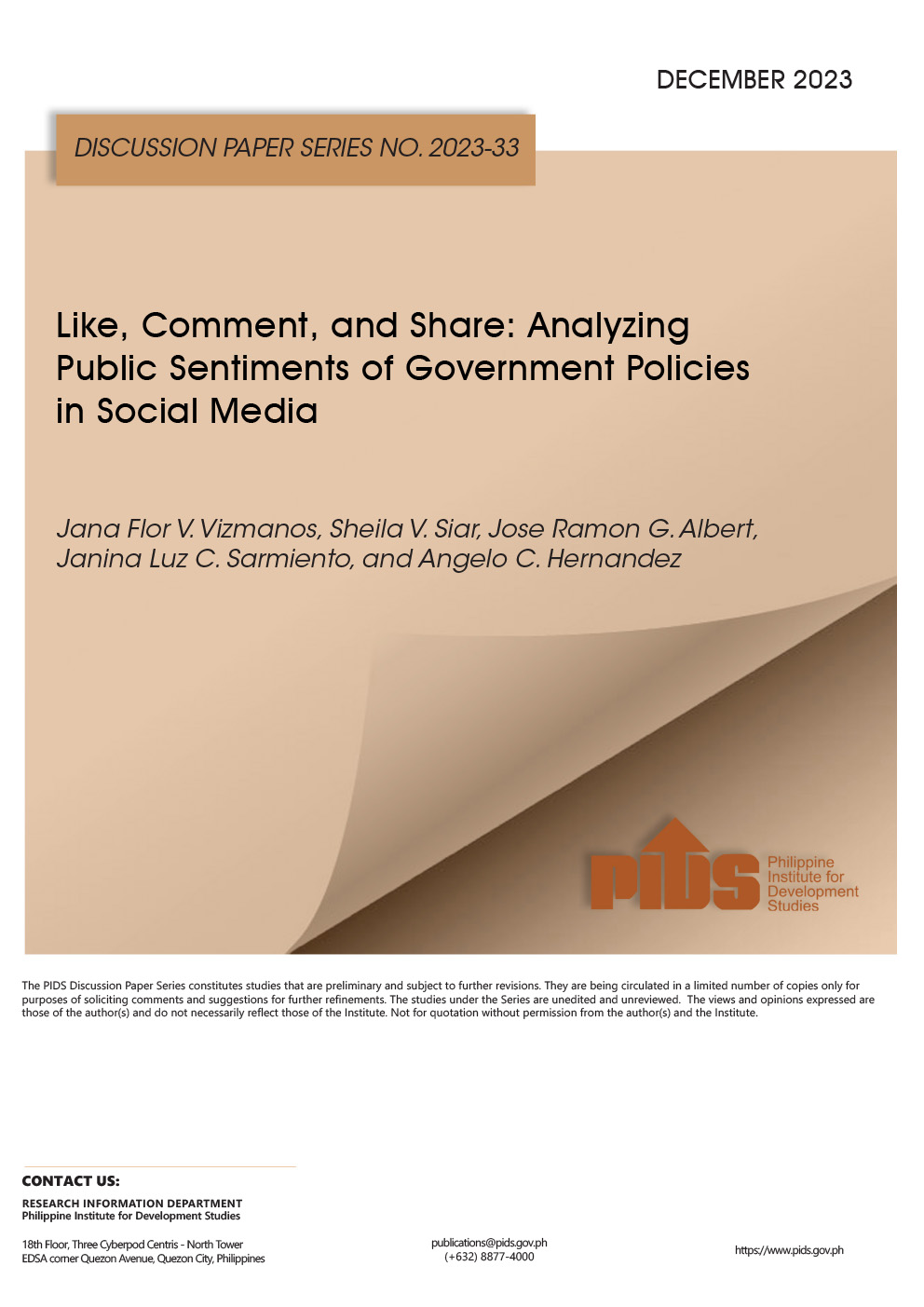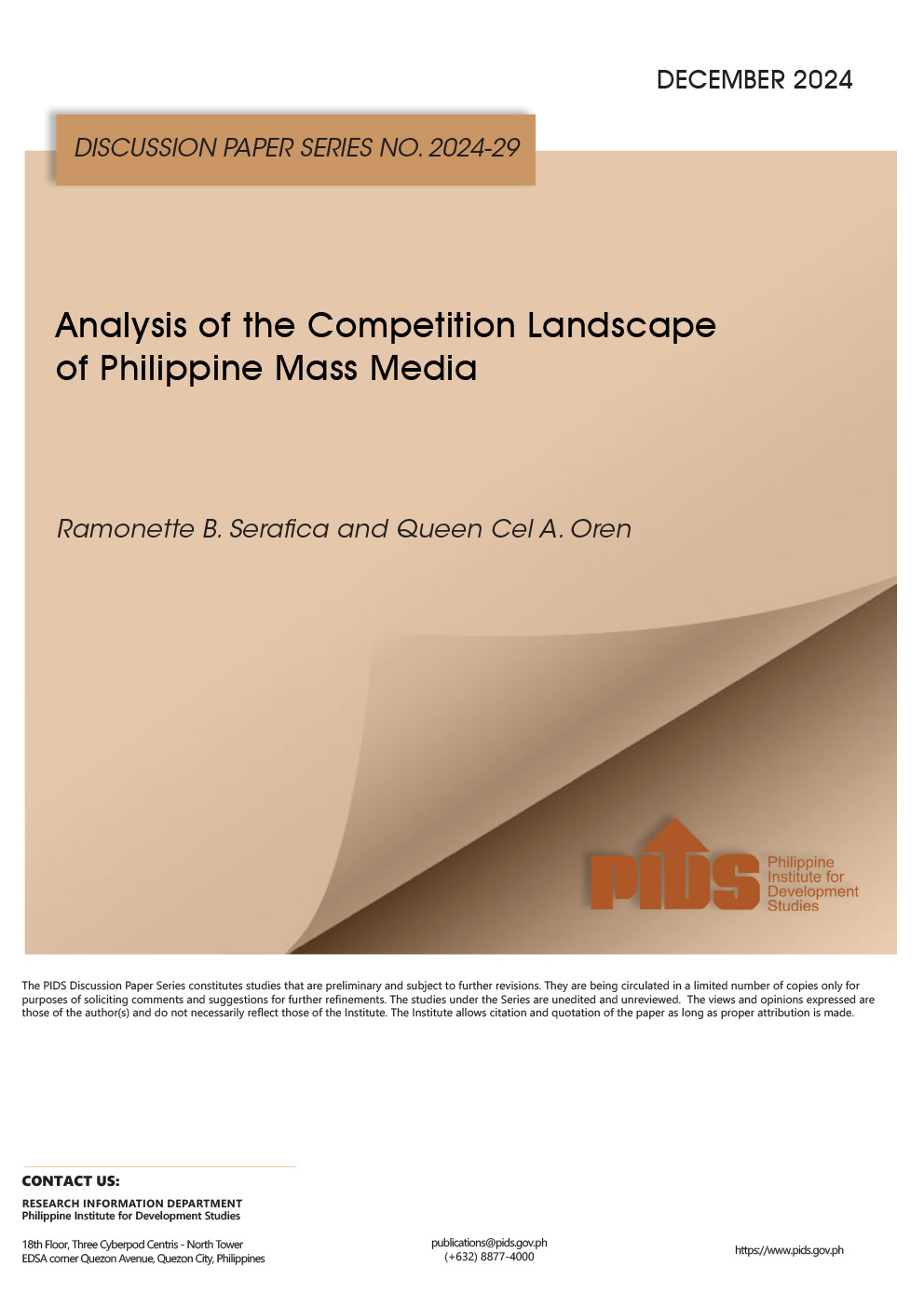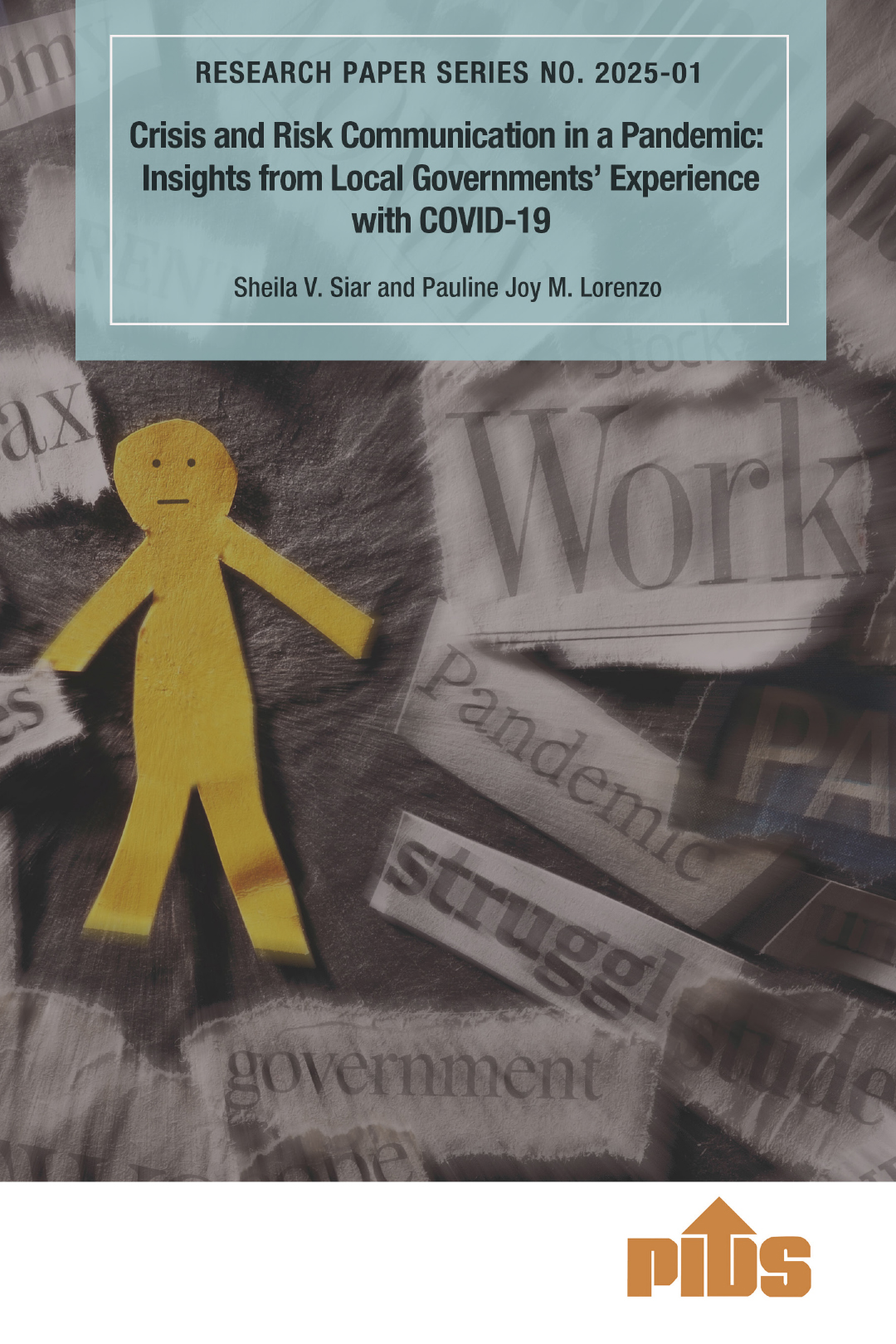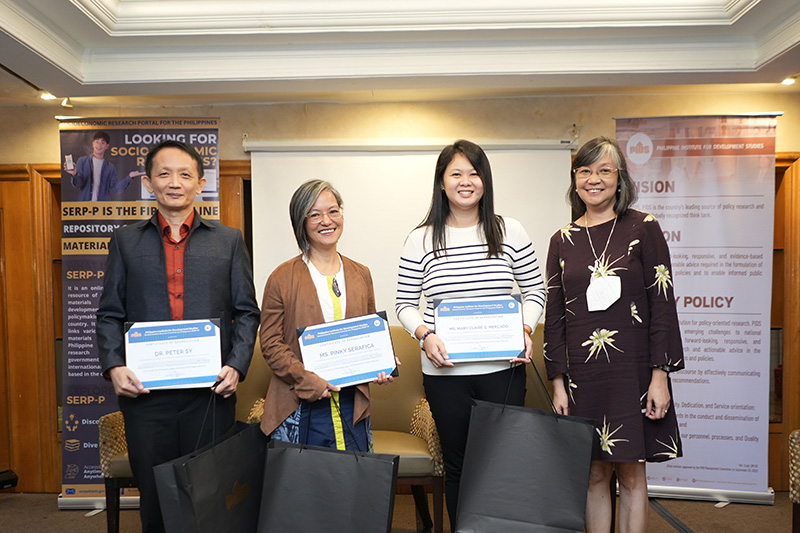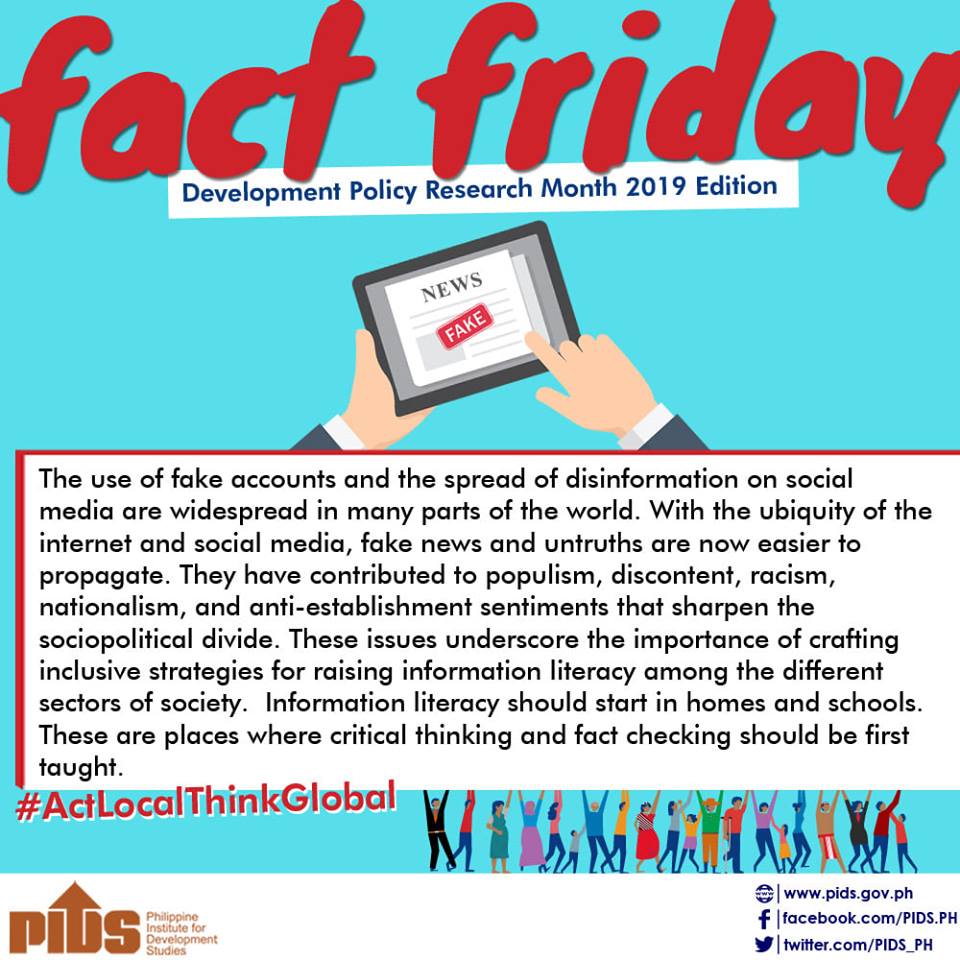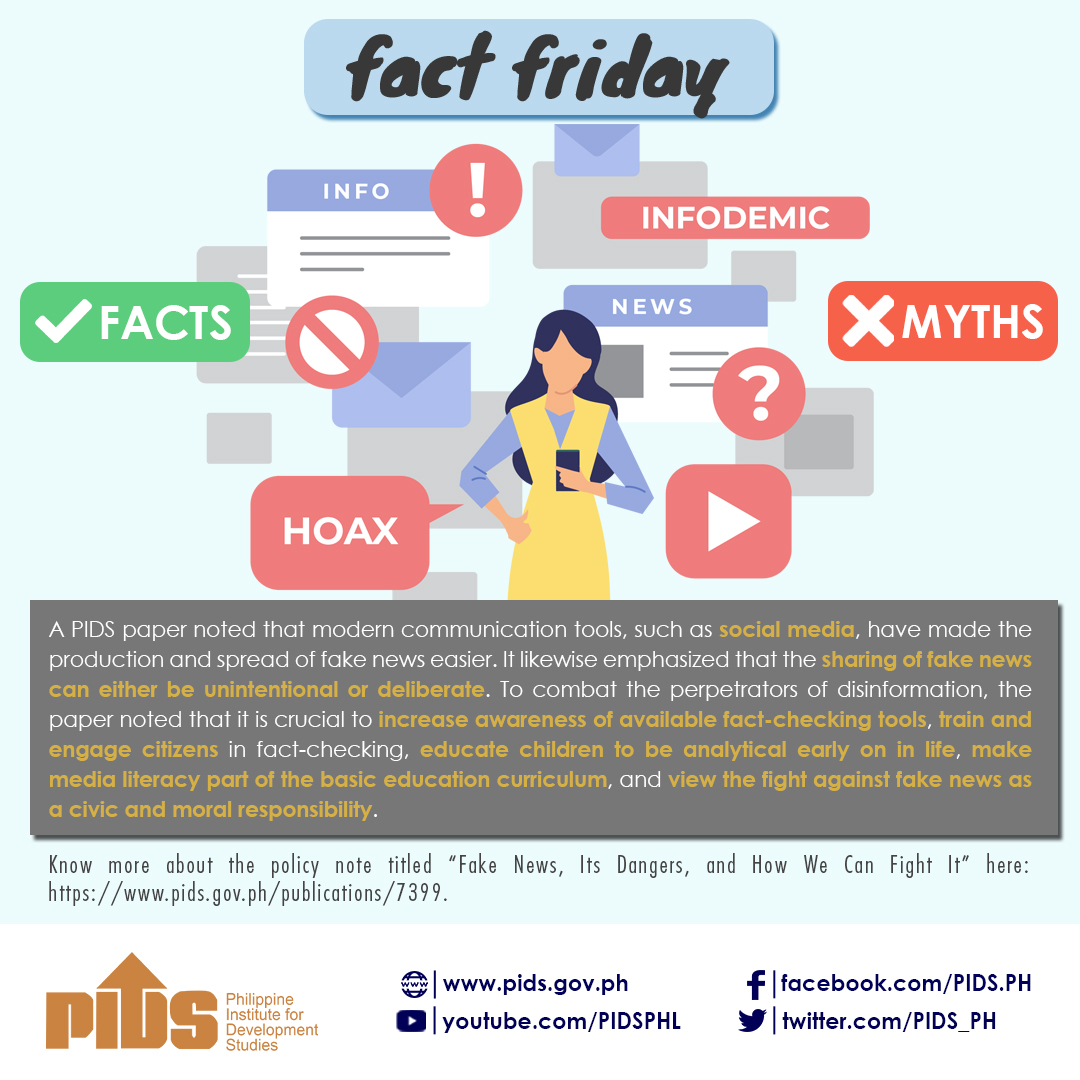Fake news has serious impacts on the response to Covid-19.
This was according to Philippine Institute for Development Studies (PIDS) Research Information Department director Sheila V. Siar at a recent webinar organized by the Institute as part of the 6th Socioeconomic Research Portal for the Philippines (SERP-P) Network Biennial Meeting.
SERP-P is an online knowledge portal of socioeconomic studies produced by PIDS and more than 50 member-institutions comprising the SERP-P Network.
Quoting from World Health Organization (WHO) director-general Tedros Adhanom Ghebreyesus, Siar said that the world is fighting not just a pandemic but also an ‘infodemic’ as fake news is spreading faster than Covid-19.
Based on the definition of WHO, ‘infodemic’ refers to the overabundance of information — some accurate and some not — that makes it difficult for people to find trustworthy sources and reliable guidance when they need it.
Siar said that “the damage inflicted by fake news can be serious, and its ramifications far and wide, as news could travel more quickly on social media, especially sensational stories, which most disinformation producers invent in selling fake news.”
“Fake news can expose individuals and communities to further risks from not following the health protocols and not getting vaccinated. It can also instigate public fear, panic, and anxiety, creating a host of mental health issues,” she explained.
For instance, a BBC article based on a study published in the American Journal of Tropical Medicine and Hygiene reported that around 5,800 people in the United States were “hospitalized due to false information on social media, with many dying from consuming methanol or alcohol-based cleaning products”.
False information could also affect the economy, as shown in the various studies cited by Siar in her Policy Note titled “Fake news, its dangers, and how we can fight it”.
An example of this is the “news about the supposed health benefits of certain plants, such as ginger, in preventing Covid-19 infections”, which “triggered an artificial spike in their prices, causing a global shortage”.
Fake news could also cause unnecessary hoarding and panic buying, according to Siar.
In a study she cited, the sudden increase in the demand for health supplies, such as masks and protective equipment, has disrupted the local and global supply, resulting in a market failure.
Siar suggested some interventions to curve the proliferation of fake news.
One is to increase people’s awareness, familiarity, and understanding of available tools for fact-checking. She said government agencies, academic institutions, and media networks should help in promoting these to validate the authenticity of information circulated on the internet and through social media.
Another is to strengthen citizen engagement. Siar emphasized that “misinformation is a whole-of-society problem and not just an issue for the government to solve or for the tech companies to address.” She said it is vital to engage citizens in fact-checking and capacitate citizens through continuous training and education.
Siar also highlighted the importance of developing analytical thinking and digital intelligence early on in life among children, stressing that “based on cognitive psychology research, the propensity to fall prey to fake news is linked to poor analytical thinking and reflective reasoning.”
Moreover, she urged the government to include media literacy in the country’s basic education curriculum, explaining that “while there is a subject called Media and Information Literacy in the Senior High School program, it is a general course and not focused on developing media literacy skills.”
Lastly, she encouraged netizens to make fact-checking an automatic response whenever they receive potentially false information and messages from dubious sources.

